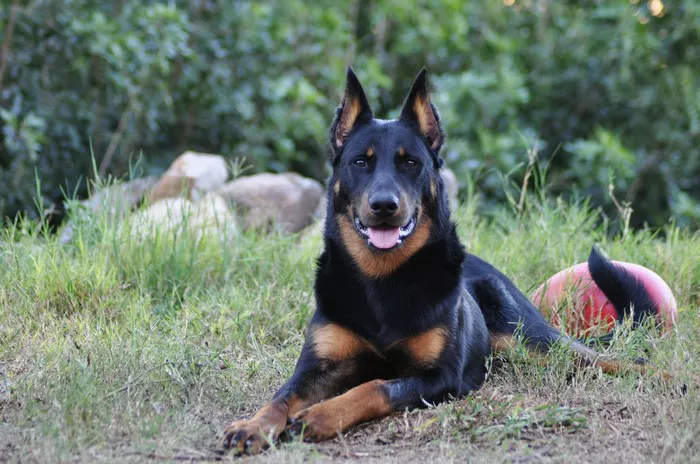Origins and Historical Purpose: Roots of Protective Instincts
Key Traits of the Beauceron Temperament
Loyalty and Devotion
Intelligence and Independence
Alertness and Calmness
Sensitivity to Environment
Understanding Aggression in Beaucerons
When Protective Instincts Cross into Aggression
Lack of Socialization: Dogs not exposed to diverse environments may become fearful or territorial.
Poor Training: Inconsistent leadership can lead to dominance-related issues.
Health Issues: Pain or illness may cause irritability.
Debunking Myths
Myth: “Beaucerons are naturally aggressive.”
Fact: Aggression is not a breed standard. Properly raised Beaucerons are stable and affectionate.
Myth: “Their size makes them dangerous.”
Fact: Size alone does not determine aggression. Training and socialization are far more influential.
Factors Influencing Aggression Levels
Genetics and Breed History
Early Socialization
Training Approach
Environment and Routine
Managing and Preventing Aggression
Socialization Strategies
Training Techniques
Mental and Physical Stimulation
Owner Leadership
Beaucerons as Family Pets: A Balanced Perspective
Ideal Home Environment
Health Considerations Impacting Behavior
Hip Dysplasia: Chronic pain may cause irritability.
Gastric Torsion (Bloat): Sudden discomfort can lead to aggressive reactions.
Progressive Retinal Atrophy: Vision loss may increase anxiety.


